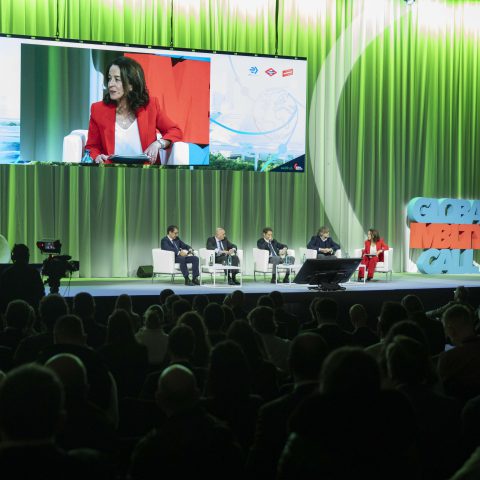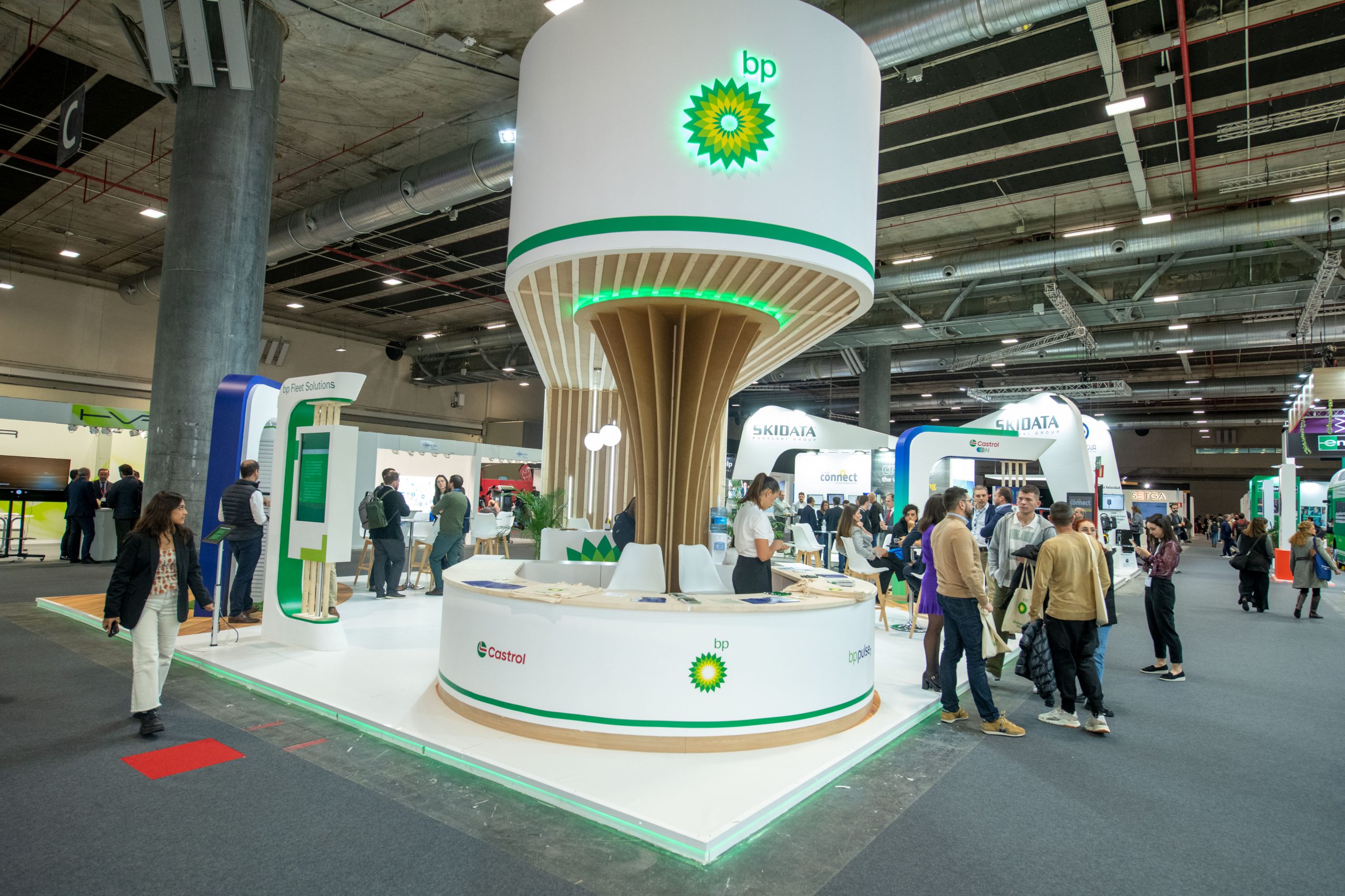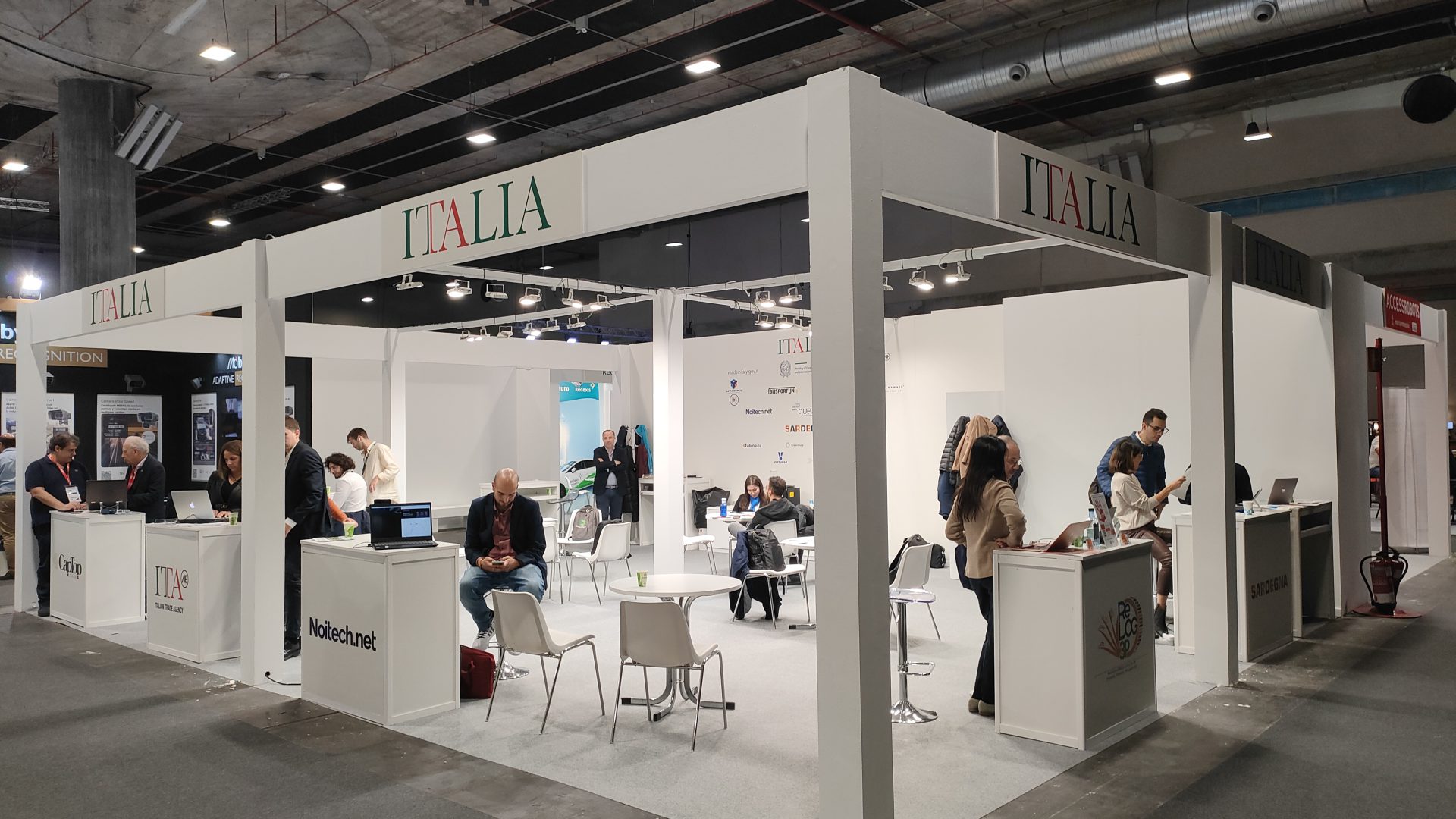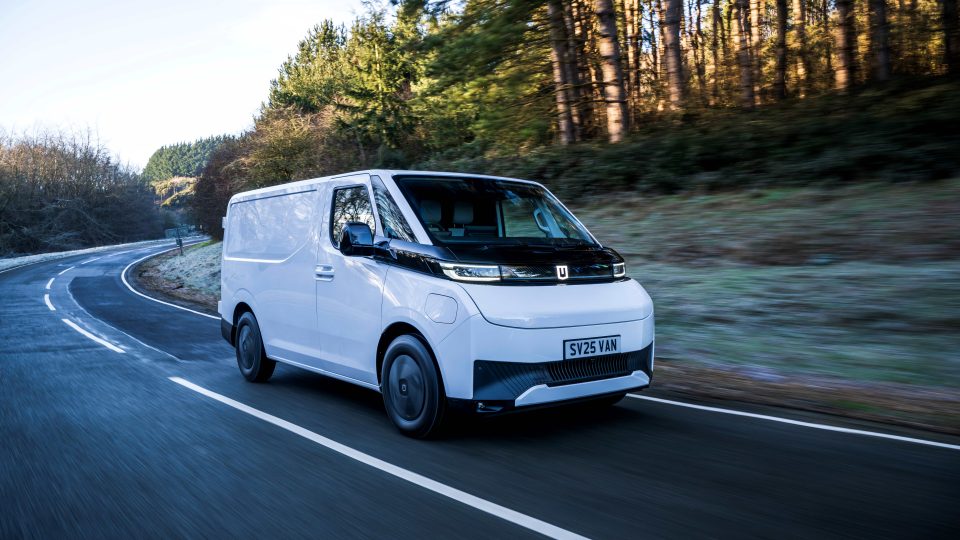Sustainable mobility without barriers. Our report from the Global Mobility Call 2023
The second edition of the Global Mobility Call in Madrid aimed to look beyond the Iberian horizon, with the idea that all players in the ecosystem should have a place to meet each year. Many, and level-headed, conferences. Still skimpy is the exhibition area, with Italy in the role of partner country this year. The event will be back in November 2024.

Tackling the big issue of sustainable mobility must contemplate a distinct change in mindset. Perhaps the main message we take home after participating in the second edition of the Global Mobility Call in Madrid (Sustainable Truck&Van was media partner of the event) is as much intangible as it is perspective.
The Spanish exhibition, born on the initiative of Smobhub, an aggregator of companies, and actors of tomorrow’s mobility, and with the active collaboration of Ifema Madrid, is in fact an attempt to “bring together under one roof all the key stakeholders and actors in the ecosystem of sustainable mobility,” as Juan José Lillo, co-founder of Smobhub, creator and curator of the event, told us.
Global Mobility Call: more of a convention than an exhibition
Yes, because the event is still more of a convention than an exhibition, given that it barely occupies a pavilion of the large and well-equipped Madrid fair. Net of the participation of some of the players in the mobility supply chain closer to the world of freight transport, the focus of the three-day Madrid event is the numerous conferences and personal speeches organized in the many spaces made available by the organizers of the Global Mobility Call.

With the presence of Spanish national politics (the local Ministerio de Transportes, Movilidad y Agenda urbana is the prime sponsor of the GMC) and local institutions always quite evident. Thus, the arrival of Acting Minister Raquel Sanchez Jiménez for the official opening of the fair did not go unnoticed, all the more so because it coincided with the long-awaited agreement found for the formation of the new Spanish government. Lucky coincidence, for the organizers, who had been forced to postpone at the last minute the dates of the 2023 edition due to the well-known vicissitudes of local politics.
International breathe
However, those who should be thinking of a local event are mistaken. Although focused on the Spanish market, Global Mobility Call is evidently trying to become more international, and with some appreciable results.
See the direct participation of a leading company such as Karsan (buses), the slew of international speakers who took turns on the stages in Hall 14 of the Madrid fair, and some wide-ranging speeches: from explorer Bertrand Piccard, Jeremy Rifkin reflecting on the energy transition, and the appeal of environmentalist Peggy Liu, the ‘green goddess of China’ to look with interest and not hostility at the experience of Chinese cities on the paradigm shift in mobility.
Italy as Partner Country 2023
But also a flagship for Italy, partner of edition number two with a fine collective organized by the local Foreign Trade Institute, now known by the acronym ITA (Italian trade agency). Twelve companies took part, mostly start-ups in the mobility sector or new technologies such as big data and artificial intelligence, but also university spin-offs active in the field of batteries for electric vehicles, as well as a representation from the Sardinia Region.

If one looks at the numbers of GMC number two, one has no trouble recognizing its growth: the official ones speak of about 500 speakers, more than one hundred exhibitors (up 76 percent from the first edition) and more than 8,000 professional visitors involved. Of these, 60 percent have an apex managerial position in the company, including entrepreneurs, CEO’s, mobility managers, local administrators, business development managers, start-up founders and so on.
There’s still work to do (also to involve more logistics companies)
All well, then? Not quite. The attempt to bring everything to do with sustainable mobility together in a shared, and not even that large, space is still scattered. It is precisely the freight sector that seems to be suffering more at the moment, perhaps because of the greater complexity when it comes to energy transition than, say, passenger transport, or the evolution of the strictly zero-emission forms of micro-mobility that are pervading Europe’s most advanced cities.
“We will increasingly involve large companies, major logistics operators and manufacturers,” added Juan José Lillo, who is convinced of the primary role of logistics and freight transport in the current mobility scenario.
From Spain, then, we return with curiosity about the future of Global Mobility Call. It cannot be ruled out that in the future it may make headlines, especially if it succeeds in attracting the attention of policymakers outside Spain or the Latin ‘world’. From November 19-21, 2014, we will have the first answers.

















